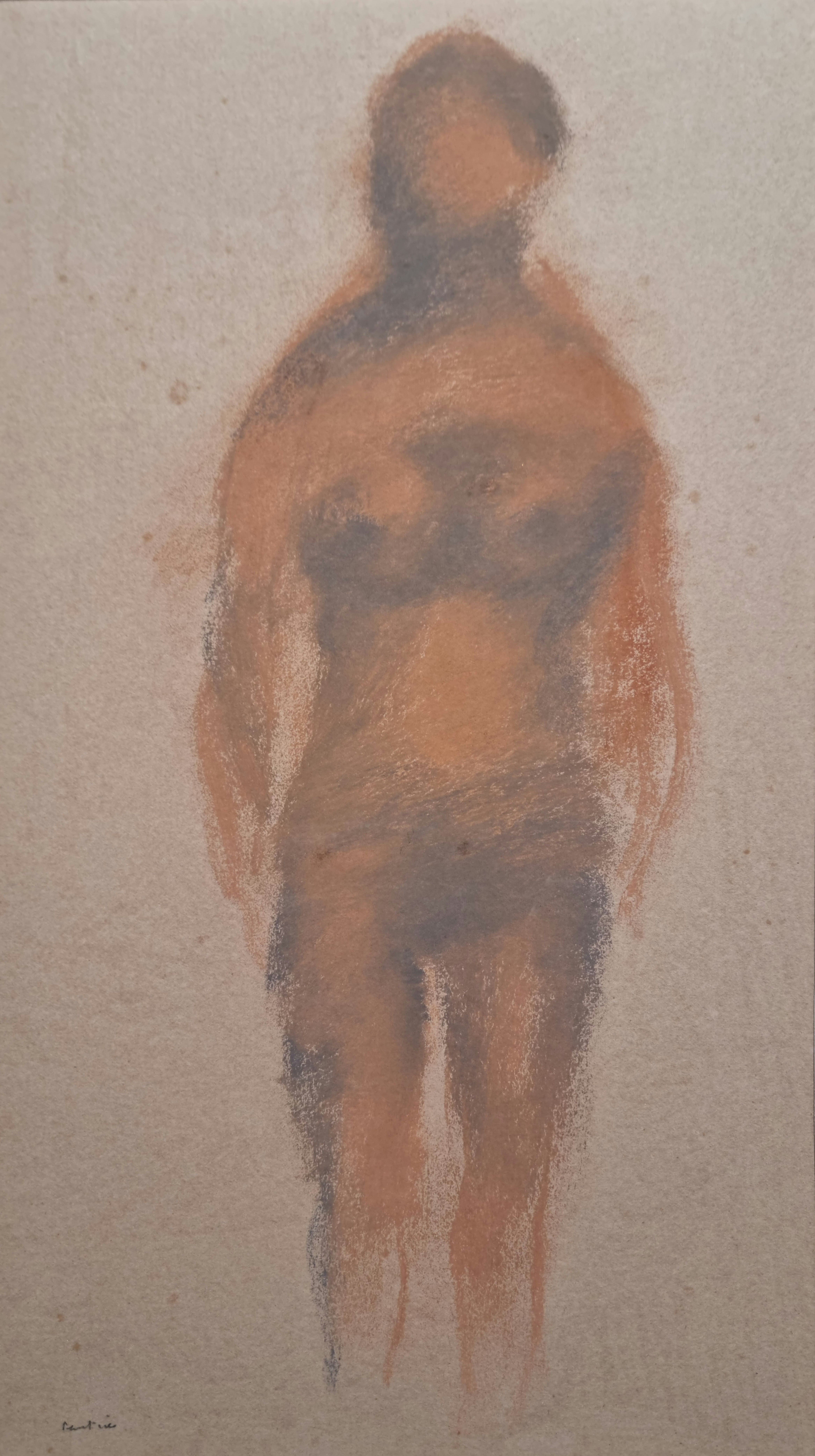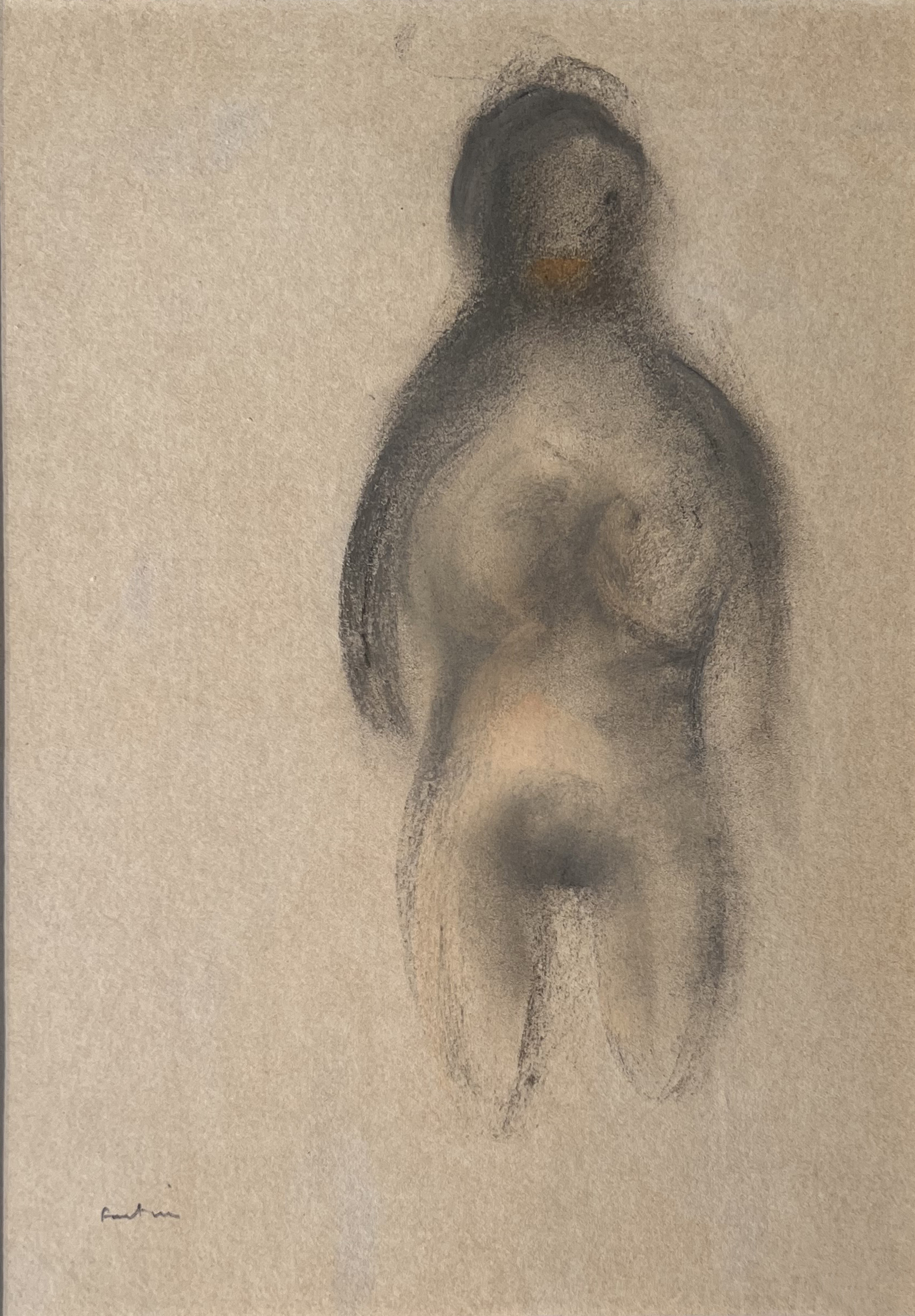Jean
Fautrier
Jean Fautrier is a French painter, sculptor and engraver, considered a precursor of informal art.
Initially rooted in figuration, Fautrier first explored traditional themes such as portraits, still lifes, female nudes and landscapes, which he declined in series where black predominated. After the traumatic experience of the Second World War, he turned to informal art with Jean Dubuffet. It was during this period that he created his emblematic series “Les Otages” (1943-1945), a set of textured paintings that convey the horrors of war through an emotional and brutal abstraction.
Fautrier focused in particular on questions of matter, texture and gesturality, developing a unique technique of superimposing layers of paint and paste, which he then worked into surfaces with rich, complex reliefs. His works, often monochrome or in delicate hues, oscillate between sensuality and pain, playing on the ambiguity of form and meaning. It was only after the war that Jean Fautrier began to receive the recognition he deserved. In 1960, he won the prestigious International Painting Prize at the Venice Biennale. This consecration confirms his pioneering role in the evolution of abstract and informal art.
Fautrier's creations continue to be exhibited in museums and galleries around the world, recalling his ability to captivate the viewer with their emotional quality and profound exploration of matter and form. Numerous exhibitions have been devoted to the artist in France and abroad, including three retrospectives at the Musée d'Art Moderne de la Ville de Paris in 1964, 1989 and 2018.

.png)

.jpg)




.png)